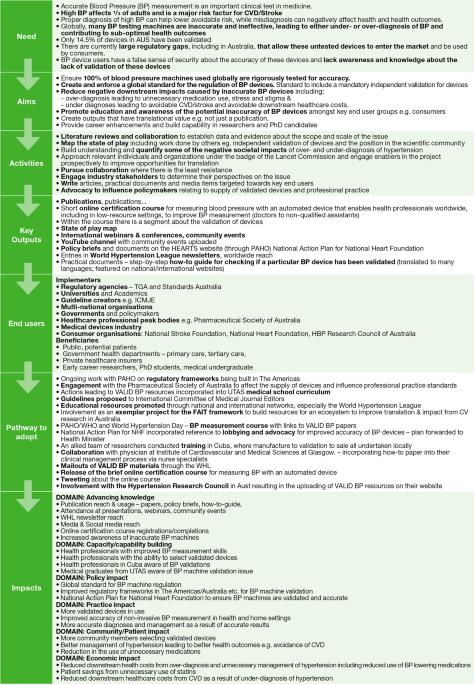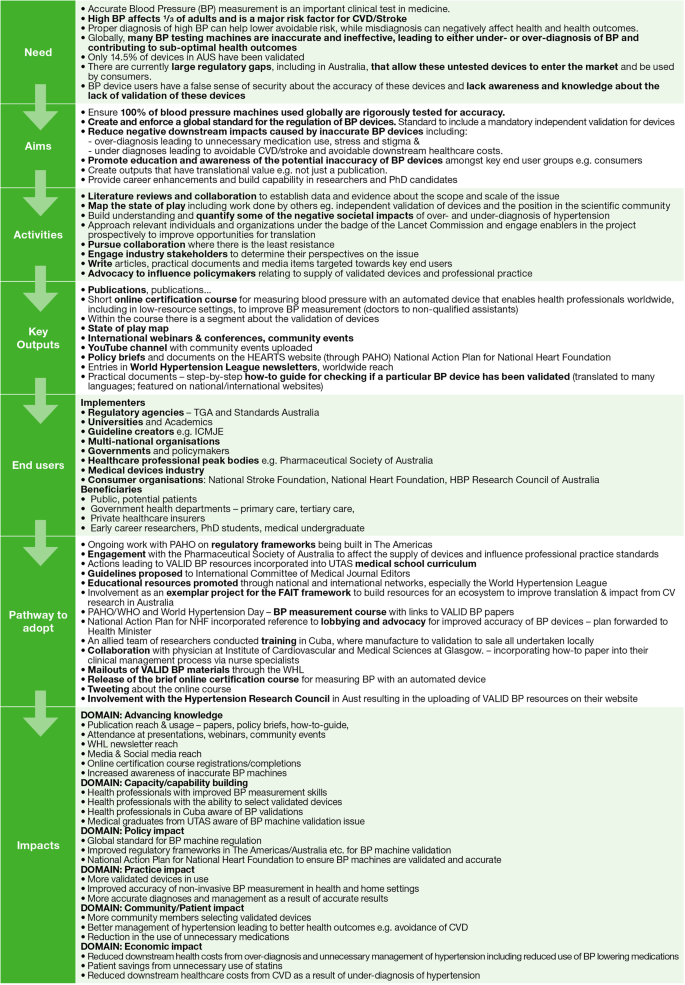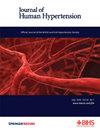Improving the accuracy of blood pressure measuring devices in Australia: a modelled return on investment study
IF 2.7
4区 医学
Q2 PERIPHERAL VASCULAR DISEASE
引用次数: 0
Abstract
The VALID BP project was initiated to increase the availability of validated blood pressure measuring devices (BPMDs). The goal is to eliminate non validated BPMDs and minimise over- and underdiagnosis of hypertension caused by inaccurate readings. This study was undertaken to assess the potential return on investment in the VALID BP project. The Framework to Assess the Impact of Translational Health Research was applied to the VALID BP project. This paper focuses on the implementation of the cost benefit analysis aspect of this framework to monetise past research investment and model future research costs, implementation costs, and benefits. Analysis was based on reasoned assumptions about potential impacts from availability and use of validated BPMDs (assuming an end goal of 100% validated BPMDs available in Australia by 2028) and improved skills leading to more accurate BP measurement. After 5 years, with 20% attribution of benefits, there is a potential $1.14–$1.30 return for every dollar spent if the proportion of validated BPMDs and staff trained in proper BP measurement technique increased from 20% to 60%. After eight years (2020–2028) and assuming universal validation and training coverage, the returns would be between $2.70 and $3.20 per dollar spent (not including cost of side effects of unnecessary medication or downstream patient impacts from unmanaged hypertension). This modelled economic analysis indicates there will be positive downstream economic benefits if the availability of validated BPMDs is increased. The findings support ongoing efforts toward a universal regulatory framework for BPMDs and can be considered within more detailed future economic analyses.


提高澳大利亚血压测量设备的准确性:一项模拟投资回报研究。
VALID BP项目旨在增加经验证的血压测量设备(BPMD)的可用性。目标是消除未经验证的BPMD,并最大限度地减少因读数不准确而导致的高血压过度诊断和诊断不足。本研究旨在评估VALID BP项目的潜在投资回报。评估转化健康研究影响的框架应用于VALID BP项目。本文侧重于该框架的成本效益分析方面的实施,以将过去的研究投资货币化,并对未来的研究成本、实施成本和效益进行建模。分析基于对经验证的BPMD的可用性和使用的潜在影响的合理假设(假设到2028年澳大利亚可获得100%经验证的BPM D的最终目标),以及提高技能以实现更准确的BP测量。5年后,如果经过验证的BPMD和接受过适当BP测量技术培训的员工的比例从20%增加到60%,那么在20%的福利归属下,每花费一美元,就可能获得1.14-1.30美元的回报。八年后(2020-2028年),假设普遍验证和培训覆盖范围,每花费一美元,回报将在2.70美元至3.20美元之间(不包括不必要药物的副作用成本或未经管理的高血压对下游患者的影响)。该建模的经济分析表明,如果增加经验证的BPMD的可用性,将产生积极的下游经济效益。这些发现支持了为BPMD建立通用监管框架的持续努力,并可在未来更详细的经济分析中加以考虑。
本文章由计算机程序翻译,如有差异,请以英文原文为准。
求助全文
约1分钟内获得全文
求助全文
来源期刊

Journal of Human Hypertension
医学-外周血管病
CiteScore
5.20
自引率
3.70%
发文量
126
审稿时长
6-12 weeks
期刊介绍:
Journal of Human Hypertension is published monthly and is of interest to health care professionals who deal with hypertension (specialists, internists, primary care physicians) and public health workers. We believe that our patients benefit from robust scientific data that are based on well conducted clinical trials. We also believe that basic sciences are the foundations on which we build our knowledge of clinical conditions and their management. Towards this end, although we are primarily a clinical based journal, we also welcome suitable basic sciences studies that promote our understanding of human hypertension.
The journal aims to perform the dual role of increasing knowledge in the field of high blood pressure as well as improving the standard of care of patients. The editors will consider for publication all suitable papers dealing directly or indirectly with clinical aspects of hypertension, including but not limited to epidemiology, pathophysiology, therapeutics and basic sciences involving human subjects or tissues. We also consider papers from all specialties such as ophthalmology, cardiology, nephrology, obstetrics and stroke medicine that deal with the various aspects of hypertension and its complications.
 求助内容:
求助内容: 应助结果提醒方式:
应助结果提醒方式:


